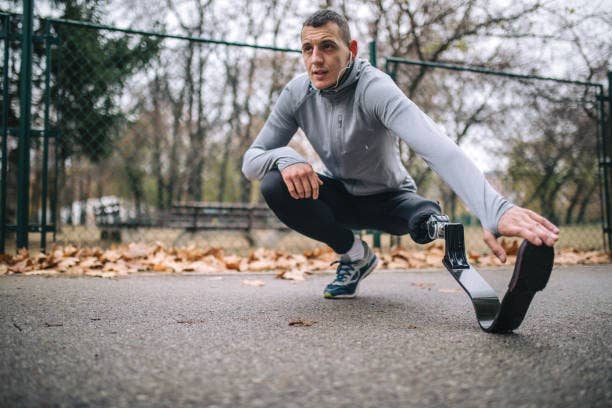 Share on PinterestA new study suggests that saunas may be more effective than ice baths in treating depression. Dimensions/Getty ImagesIn addition to psychotherapy, antidepressant drugs are often prescribed to treat mental health conditions, but they can have side effects that affect a person’s quality of life. Alternative therapies such as cold exposure or heat therapy may help alleviate depression symptoms instead of or in conjunction with antidepressant medications. Researchers from the University of California – San Francisco found that people with depression have higher body temperatures, suggesting that lowering body temperature through ice baths or saunas might provide a mental health benefit. Depression affects about 5% of the global adult population and has increased during and after the COVID-19 pandemic due to issues such as inequality, employment loss, and inefficient social support. Antidepressant drug use has also increased, and while generally safe, these medications can have side effects such as stomach issues, headache, problems sleeping, sexual dysfunction, weight gain, and anxiety feelings, which can worsen a person’s quality of life. Due to these potential side effects, people with depression may seek alternative therapies such as herbs and supplements, meditation, acupuncture, dietary changes, yoga, and psychotherapy. The University of California – San Francisco study found that people with depression have higher body temperatures, suggesting that heat therapy through a hot tub or sauna might provide a mental health benefit. This study was recently published in the journal Scientific Reports. According to Dr. Ashley Mason, associate professor of psychiatry at the UCSF Weill Institute for Neurosciences and the UCSF Osher Center for Integrative Health at the University of California – San Francisco and lead author of the study, depression is a major detriment to quality of life, and current treatments do not fully meet the clinical needs of the population. Dr. Mason and her team examined a potential link between depression and higher body temperature. She explained that data shows that when people recover from depression, their temperature tends to regularize, and newer data suggests that temperature-based interventions may reduce depression symptoms. One example is that using heat-based treatments, particularly infrared sauna, causes acute increases in body temperature. Dr. Mason mentioned that these increases engage the body’s self-cooling mechanisms, such as sweating, leading to subsequent decreases in body temperature. “And one study showed that decreases in a person’s body temperature in the days after a single heat treatment correlated with decreases in their depression symptoms over that same time period,” Dr. Mason continued. “So what’s exciting here is that the link might operate in multiple ways — what’s new is that we might be able to intervene directly on body temperature to address depression symptoms.” For the study, Dr. Mason and her team analyzed data from over 20,000 study participants from 106 countries. The participants wore a device measuring their body temperature and self-reported their body temperatures and depression symptoms each day for seven months. The researchers found that study participants had higher body temperatures with increasing levels of depression symptom severity. “Our finding that increasing levels of depression was associated with increasing body temperature is novel,” Dr. Mason said. Prior studies have shown a link between depression and increased body temperature, but our study is the largest of its kind to show a dose-response association — the greater the depression, the greater the body temperature. We found what the prior data suggested we would find.” Dr. Mason added, “There are many unanswered questions about the link between body temperature and depression.” Inflammation may be a factor, and the team is looking into this in their ongoing work. Thermosensory pathways may also play a role. These pathways relay sensory information from the skin to the central nervous system and impact mood and cognitive function. The researchers believe these findings highlight the potential for new depression treatments focused on lowering body temperature. They state that these findings may support the use of interventions that temporarily raise body temperature, such as hot yoga, hyperthermic baths, and infrared saunas. Another study published in August 2016 found that whole-body hyperthermia — a treatment used to slightly raise body temperature — may also be a potential therapy for depression. Dr. Mason mentioned that heating people up can lead to rebound body temperature lowering that lasts longer than simply cooling people down directly through an ice bath. They are actively studying heat treatments, particularly sauna treatments, as a body-based intervention for depression symptoms at UCSF. There is an ongoing trial for individuals with clinical depression where sauna treatments are paired with cognitive behavioral therapy. Research has also explored using cold therapies such as cryotherapy and ice baths as potential depression treatments. A study published in June 2020 reported that whole-body cryotherapy helps reduce mental health deterioration in mood disorders, such as depression. Research published in December 2021 found that a single immersion in cold water can help improve a person’s mood. Dr. Gary Small, Chair of Psychiatry at Hackensack University Medical Center in New Jersey, stated that previous research has shown that hot baths help mitigate mood symptoms and that the body’s ability to cool down from warmed states may yield an antidepressant effect. He suggested that future controlled prospective studies comparing different methods for cooling off would help mental health professionals develop more effective body-temperature strategies for mitigating mood.
Share on PinterestA new study suggests that saunas may be more effective than ice baths in treating depression. Dimensions/Getty ImagesIn addition to psychotherapy, antidepressant drugs are often prescribed to treat mental health conditions, but they can have side effects that affect a person’s quality of life. Alternative therapies such as cold exposure or heat therapy may help alleviate depression symptoms instead of or in conjunction with antidepressant medications. Researchers from the University of California – San Francisco found that people with depression have higher body temperatures, suggesting that lowering body temperature through ice baths or saunas might provide a mental health benefit. Depression affects about 5% of the global adult population and has increased during and after the COVID-19 pandemic due to issues such as inequality, employment loss, and inefficient social support. Antidepressant drug use has also increased, and while generally safe, these medications can have side effects such as stomach issues, headache, problems sleeping, sexual dysfunction, weight gain, and anxiety feelings, which can worsen a person’s quality of life. Due to these potential side effects, people with depression may seek alternative therapies such as herbs and supplements, meditation, acupuncture, dietary changes, yoga, and psychotherapy. The University of California – San Francisco study found that people with depression have higher body temperatures, suggesting that heat therapy through a hot tub or sauna might provide a mental health benefit. This study was recently published in the journal Scientific Reports. According to Dr. Ashley Mason, associate professor of psychiatry at the UCSF Weill Institute for Neurosciences and the UCSF Osher Center for Integrative Health at the University of California – San Francisco and lead author of the study, depression is a major detriment to quality of life, and current treatments do not fully meet the clinical needs of the population. Dr. Mason and her team examined a potential link between depression and higher body temperature. She explained that data shows that when people recover from depression, their temperature tends to regularize, and newer data suggests that temperature-based interventions may reduce depression symptoms. One example is that using heat-based treatments, particularly infrared sauna, causes acute increases in body temperature. Dr. Mason mentioned that these increases engage the body’s self-cooling mechanisms, such as sweating, leading to subsequent decreases in body temperature. “And one study showed that decreases in a person’s body temperature in the days after a single heat treatment correlated with decreases in their depression symptoms over that same time period,” Dr. Mason continued. “So what’s exciting here is that the link might operate in multiple ways — what’s new is that we might be able to intervene directly on body temperature to address depression symptoms.” For the study, Dr. Mason and her team analyzed data from over 20,000 study participants from 106 countries. The participants wore a device measuring their body temperature and self-reported their body temperatures and depression symptoms each day for seven months. The researchers found that study participants had higher body temperatures with increasing levels of depression symptom severity. “Our finding that increasing levels of depression was associated with increasing body temperature is novel,” Dr. Mason said. Prior studies have shown a link between depression and increased body temperature, but our study is the largest of its kind to show a dose-response association — the greater the depression, the greater the body temperature. We found what the prior data suggested we would find.” Dr. Mason added, “There are many unanswered questions about the link between body temperature and depression.” Inflammation may be a factor, and the team is looking into this in their ongoing work. Thermosensory pathways may also play a role. These pathways relay sensory information from the skin to the central nervous system and impact mood and cognitive function. The researchers believe these findings highlight the potential for new depression treatments focused on lowering body temperature. They state that these findings may support the use of interventions that temporarily raise body temperature, such as hot yoga, hyperthermic baths, and infrared saunas. Another study published in August 2016 found that whole-body hyperthermia — a treatment used to slightly raise body temperature — may also be a potential therapy for depression. Dr. Mason mentioned that heating people up can lead to rebound body temperature lowering that lasts longer than simply cooling people down directly through an ice bath. They are actively studying heat treatments, particularly sauna treatments, as a body-based intervention for depression symptoms at UCSF. There is an ongoing trial for individuals with clinical depression where sauna treatments are paired with cognitive behavioral therapy. Research has also explored using cold therapies such as cryotherapy and ice baths as potential depression treatments. A study published in June 2020 reported that whole-body cryotherapy helps reduce mental health deterioration in mood disorders, such as depression. Research published in December 2021 found that a single immersion in cold water can help improve a person’s mood. Dr. Gary Small, Chair of Psychiatry at Hackensack University Medical Center in New Jersey, stated that previous research has shown that hot baths help mitigate mood symptoms and that the body’s ability to cool down from warmed states may yield an antidepressant effect. He suggested that future controlled prospective studies comparing different methods for cooling off would help mental health professionals develop more effective body-temperature strategies for mitigating mood.
Depression and body temperature: Which is better, saunas or ice baths?














